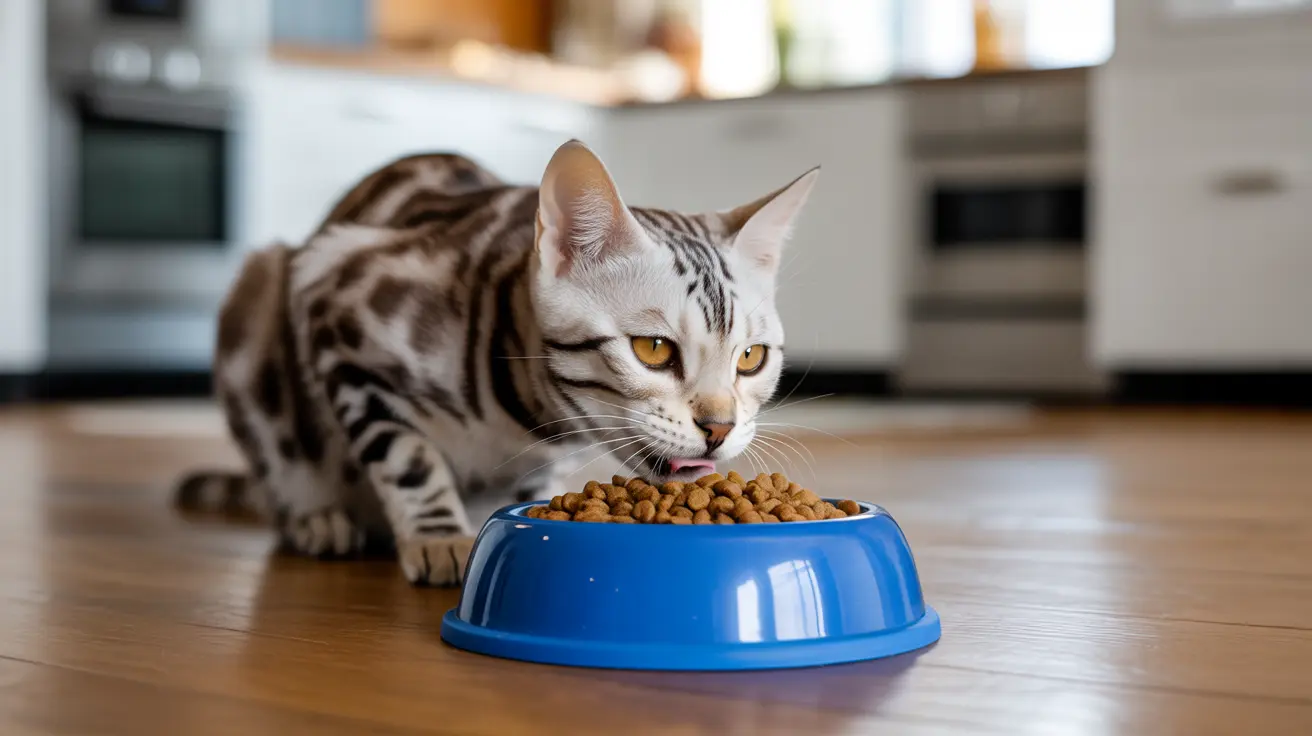The Natural Instinct Behind Fast Eating
Cats' tendency to eat quickly is deeply rooted in their wild ancestry. In nature, cats must eat their prey rapidly to prevent other predators from stealing their hard-earned meal. This survival instinct remains strong in domestic cats, even when they live in safe, comfortable homes with regular meals.
Additionally, cats are natural hunters designed to eat multiple small meals throughout the day. When confined to structured feeding times, they may overcompensate by eating more quickly than they should.
Common Causes of Rapid Eating in Cats
Competition and Multi-Cat Dynamics
In households with multiple cats, competition for resources often drives rapid eating behavior. Cats may feel pressured to eat quickly to ensure they get their share, even if there's plenty of food for everyone.
Psychological Factors
Stress, anxiety, and boredom can all contribute to rapid eating in cats. Some cats eat quickly as a coping mechanism when they feel uncomfortable or understimulated. Past experiences of food scarcity can also create lasting behavioral patterns of quick eating.
Health-Related Reasons for Fast Eating
Medical Conditions
- Hyperthyroidism
- Diabetes
- Intestinal parasites
- Dietary deficiencies
- Dental problems
Nutritional Factors
Cats may eat too quickly if their diet doesn't provide adequate nutrition or satisfy their natural needs. Low-protein diets or those high in carbohydrates might leave cats feeling constantly hungry, leading to rapid eating during meals.
Solutions to Slow Down Your Cat's Eating
Environmental Modifications
- Use puzzle feeders or slow-feed bowls
- Spread food across a large, flat plate
- Place small obstacles in the food bowl
- Feed smaller portions more frequently
Feeding Schedule Adjustments
Implementing a consistent feeding schedule with multiple small meals throughout the day can help regulate eating speed and reduce anxiety around food.
When to Seek Veterinary Help
If your cat's rapid eating is accompanied by weight changes, vomiting, or behavioral issues, it's important to consult a veterinarian. They can rule out medical conditions and provide tailored advice for your cat's specific situation.
Frequently Asked Questions
Why does my cat eat so fast and then vomit or regurgitate?
Rapid eating can cause cats to swallow air along with their food, leading to regurgitation. When food isn't properly chewed, it can also expand in the stomach too quickly, triggering the regurgitation reflex.
Could my cat's rapid eating be caused by stress, boredom, or anxiety?
Yes, psychological factors often contribute to rapid eating. Cats may eat quickly when stressed, anxious, or bored, using food as a comfort mechanism.
How can I slow down my cat's eating to prevent health issues like obesity or vomiting?
Use slow-feed bowls, puzzle feeders, or spread food across a larger surface. Implement multiple small meals throughout the day instead of one or two large ones.
Is rapid eating in cats a sign of underlying medical problems like hyperthyroidism or parasites?
Yes, fast eating can indicate various medical conditions. If rapid eating is a new behavior or accompanied by other symptoms, consult your veterinarian.
What feeding strategies help reduce competition and territorial eating in multi-cat households?
Feed cats in separate locations, use multiple feeding stations, and ensure each cat has their own food and water bowls. Consider feeding cats in different rooms if necessary.
Conclusion
While rapid eating is common in cats, understanding its causes helps address the behavior effectively. Whether the solution involves environmental changes, feeding modifications, or veterinary intervention, taking action to slow down your cat's eating can significantly improve their health and well-being.






